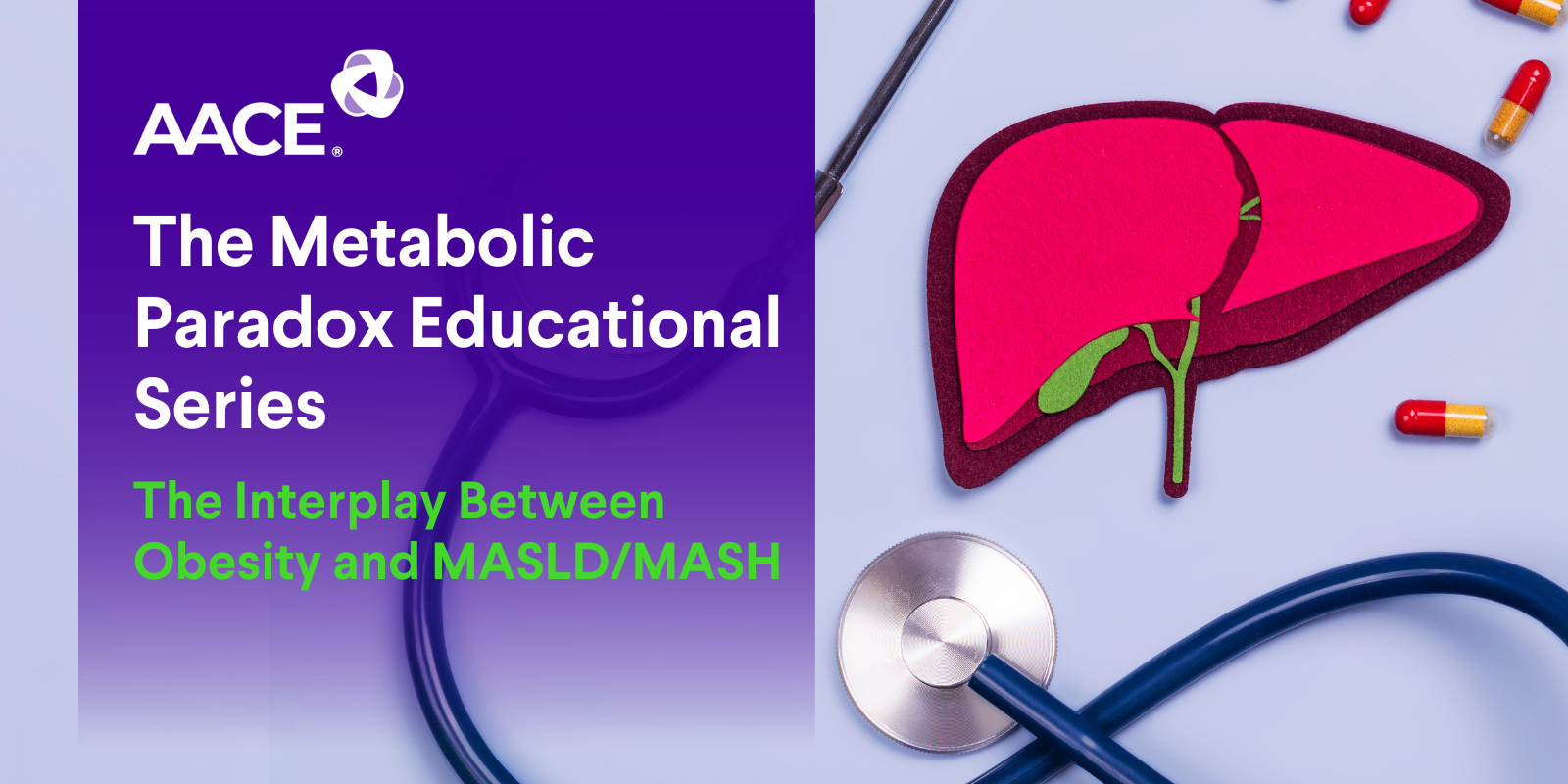
This complimentary educational series has been designed for the full endocrine care team, including endocrinologists, primary care physicians, and allied health professionals like nurses and physician assistants. Each module within this course is intended to support the endocrine care team in enhancing their foundational knowledge and skills involved in managing Metabolic Dysfunction–Associated Steatotic Liver Disease (MASLD) and Metabolic Dysfunction–Associated Steatohepatitis (MASH). With topics that range from screening tools, diagnosis, and the relationship between obesity and liver disease, this course focuses on case-based strategies to engage learners in the practical application of management strategies.
This course is designed to support members of the endocrine team in the identification, treatment, and management of MASLD and MASH, and the connection between liver disease management and weight loss interventions. This course includes the latest treatment guidelines and algorithms, emerging pharmacotherapies, and evidence-based approaches for shared decision making and using a team-based approach.
Module 1: Foundations of MASLD and MASH - Epidemiology and Pathophysiology
Developed and presented by Kim Pfotenhauer, DO, FACOFP, DABOM
- Current Landscape of MASLD and MASH
- Epidemiological overview
- Pathophysiological mechanisms linking obesity and liver disease
- Clinical inertia and its impact on early diagnosis
- Risk Factor Deep Dive
- Metabolic syndrome and liver health
- Obesity phenotypes and their relationship to liver disease progression
Module 2: Diagnostic Strategies and Team-Based Screening Approaches
Developed and presented by Aman Rajpal, MD, Dipl. of ABOM
- Non-Invasive Diagnostic Techniques
- Digital biomarkers
- Advanced imaging technologies
- Interpretation of screening results
- Team-Based Care Efficiency
- Workflow optimization strategies with delegation protocols for initial patient assessments
- Standardized screening and documentation processes
- Interdisciplinary Referral Protocols
- Developing standardized referral pathways
- Communication strategies across specialties
Module 3: Comprehensive Treatment Approaches and Team Management
Developed and presented by Sarah Barenbaum, MD, and Sangeeta Kashyap, MD
- Personalized Treatment Strategies
- Lifestyle modification protocols
- Pharmacological interventions
- Weight management integration
- Advanced Team-Based Management Strategies
- Detailed role delineation for advanced practice providers
- Skill-building for NPs and PAs in MASLD and MASH management
- Interdisciplinary communication frameworks, including patient tracking and follow-up coordination
- Collaborative Care Models
- Leveraging specialist teams
- Patient-centered care coordination
Module 4: Advanced Management and Future Directions
Collaboratively developed and presented by Dr. Kim Pfotenhauer, Dr. Aman Rajpal, Dr. Sarah Barenbaum, and Dr. Sangeeta Kashyap
- Emerging Therapies and Guidelines
- Latest research updates
- Emerging pharmacotherapies
- Predictive modeling in MASLD and MASH progression
- Long-Term Patient Management Strategies
- Monitoring and follow-up protocols
- Patient education and engagement techniques
- Sustaining team-based care effectiveness
9/24/2025
11/19/2026
Upon completion of this program, learners will be able to:
- Describe the current guidelines and recommendations for MASLD and MASH screening and diagnosis while addressing clinical inertia.
- Examine collaborative care models that effectively leverage the endocrine care team and specialists to streamline the MASLD and MASH screening processes and enhance comprehensive patient care across multiple specialties.
- Identify the key factors in early screening contributing to the development and progression of MASLD and MASH in patients with obesity.
- Develop a strategy for incorporating non-invasive tests and digital biomarkers into clinical practice for MASLD and MASH management.
- Apply a person-centered, evidence-based treatment plan for patients with MASLD and MASH, incorporating individualized lifestyle modifications and pharmacological therapies as appropriate.
- Develop long-term patient management strategies to monitor progression and ensure sustained patient engagement.
This course is intended for medical professionals from the field of clinical endocrinology at all stages in their career including clinical endocrinologists, primary care physicians, physician assistants, nurse practitioners, nurses, pharmacists, registered dietitians, medical students, residents, and fellows in training.
This activity is supported by an independent educational grant from Boehringer Ingelheim.
